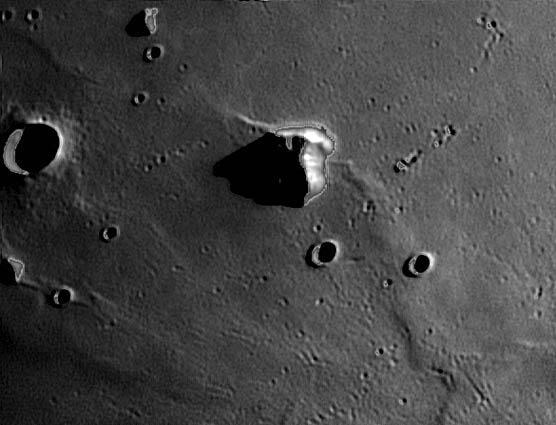December 20, 2015
Peaky Piton
Originally published February 10, 2005
Image Credit: Mike Wirths |
|
Peaky Piton In some of the speculative paintings of the Moon from the 1950s and earlier, Mount Piton, Pico and similar isolated peaks were often depicted as soaring spires with long shadows. It was the low-angle shadows that fooled them, for Piton is a stubby little peak only 2.3 km high with a base about 25 km across. As Mike’s image shows, Piton has variations in brightness similar to bands on the inner walls of impact craters. The dark hues are probably the space-weathered tone of the mountain, and the bright bands are fresh material exposed by small landslides. The surrounding surface of Mare Imbrium is pockmarked with a number of craters. Some are random impacts, but the fact that many are in short lines, pairs or clusters suggests that they may be secondary craters. Technical Details: Related Links: Yesterday's LPOD: Postcard from the Moon Tomorrow's LPOD: Seeing Double at Capuanus |
|
Author & Editor: |
COMMENTS?
Register, Log in, and join in the comments.




